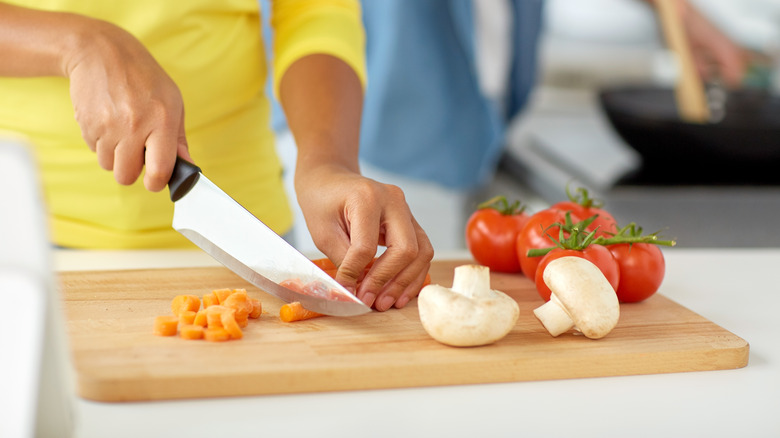
If you’ve ever watched a professional chef in action, you’ve probably marveled at their incredible knife skills. The way they effortlessly slice, dice, and chop ingredients is a true art form. But here’s a secret: you don’t have to be a professional chef to master the art of knife skills. In this article, we’ll unlock the secrets of knife skills, as revealed by private chefs. Consider this your personal lesson from your private chef.
Understanding the Anatomy of a Knife
Before we start slicing and dicing, it’s essential to understand the different parts of a knife. Every knife has a blade, a handle, and a tang. The blade can vary in shape and size, depending on the type of knife. The handle provides a comfortable grip, and the tang is the part that extends into the handle, ensuring stability.
Choosing the Right Knife
Not all knives are created equal. There’s a wide variety of knives available, each designed for specific tasks. For most kitchen tasks, a chef’s knife is your go-to choice. It’s versatile and can handle chopping, slicing, and dicing with ease.
The Essential Knife Skills
To become a pro with your knives, you need to master a few essential knife skills. These include chopping, mincing, slicing, and dicing. We’ll explore each of these skills in detail, but remember, practice makes perfect.
Grip and Hand Placement
Your grip on the knife and your hand placement are crucial for precision and safety. Hold the knife handle firmly, with your fingers wrapped around it. Your other hand, often referred to as the “claw,” holds the food securely while keeping your fingertips safely tucked away.
The Rock Chop Technique
One of the fundamental techniques in knife skills is the rock chop. This involves using a gentle rocking motion with the knife while keeping the tip in contact with the cutting board. It’s perfect for chopping herbs, garlic, and onions.
Julienne, Brunoise, and Batonnet: Precision Cuts
When you want to take your knife skills to the next level, you’ll need to master precision cuts like julienne, brunoise, and batonnet. These techniques require patience and a sharp knife, but they’re sure to impress your dinner guests.
Keeping Your Knives Sharp
A dull knife is a dangerous knife. Regularly sharpen your knives using a honing rod or a sharpening stone. A sharp knife makes cutting easier and safer.
The Importance of Cutting Boards
Your choice of cutting board matters too. Wooden and plastic cutting boards are popular choices. Wooden boards are gentle on knife edges, while plastic boards are easy to clean.
Safety First: Knife Handling Tips
Safety should always be your top priority when handling knives. Always cut away from your body, use a non-slip cutting board, and keep your knives out of the reach of children.
Mastering Speed and Efficiency
Professional chefs are known for their speed and efficiency in the kitchen. Practice is key to achieving this level of skill. Work on your knife skills consistently, and you’ll naturally become faster and more efficient.
Chef’s Knife vs. Santoku Knife
While the chef’s knife is a versatile choice, the Santoku knife has its own set of advantages. It’s excellent for precision work and is lighter and shorter than a chef’s knife. Explore both options to see which one suits your style.
Presentation Matters: Garnishing with Precision
A well-presented dish is always a winner. Garnishing with precision-cut veggies and herbs can elevate the aesthetics of your culinary creations.
Cleaning and Storing Your Knives
Proper knife care doesn’t end with just sharpening. Clean your knives immediately after use, and store them safely to maintain their sharpness and longevity.
Confidence Building Exercises
Building confidence in your knife skills takes time and practice. Start with simple tasks and gradually work your way up to more complex cuts. The more you practice, the more confident you’ll become.
Conclusion
In conclusion, mastering the secrets of knife skills is a rewarding journey. With the guidance of a private chef, you can turn your kitchen into a culinary paradise. Keep honing your skills, stay safe, and enjoy the art of cooking!


